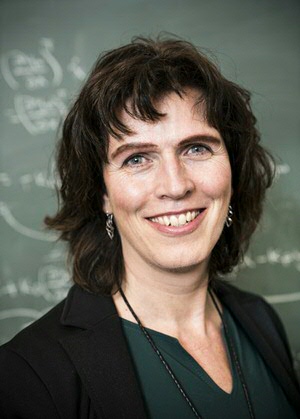Professor Jacquelien Scherpen new ‘Captain of Science’ in High-Tech Systems and Materials top sector
Thursday 26 March saw the announcement that Jacquelien Scherpen, Professor of Systems and Control Engineering at the University of Groningen, has been appointed as the Captain of Science in the High-Tech Systems and Materials (HTSM) top sector. Prof. Jacquelien Scherpen succeeds Dave Blank, Professor Emeritus of Nanotechnology at the University of Twente, who has worked in the HTSM top sector since 2011.
Innovation for key technologies

Professor Scherpen’s ambition is to use her new role to give extra impetus to innovation, particularly for the key technologies. It is an area in which the Netherlands should be keen to invest. Scherpen: ‘Take the use of digital technology and engineering & production technologies when manufacturing life support machines, and nanotechnology when developing medical tests. Innovation in these technologies is important because they form the basis of the solutions we need for our healthcare systems, for future food supplies and for the transition of the energy sector and the production industry.’
According to Scherpen, the best way to improve the innovative power of the Netherlands is to facilitate cross-pollination between science and high-tech industry. ‘It is important for researchers to keep abreast of developments in society. Conversely, companies must operate at the forefront of technology in order to take the necessary steps to secure their future.’
Scherpen has noted that, in many respects, collaboration between science and industry is already running smoothly in the Netherlands. She cites the infrastructure on the campuses as an example. ‘It’s becoming more common for companies to locate close to universities. It’s an easy-going culture, that makes companies accessible to the students.’
Knowledge development in the SME sector, on the other hand, is a point for concern, she thinks. On the whole, entrepreneurial types from the high-tech sector work in complex, fast-changing markets. They need a long-term strategy in order to survive. If they are to succeed in this, they must develop their knowledge and take steps towards innovation. This makes the link with science crucial.
As well as cross-pollination between science and industry, Scherpen also considers the human capital side to be important. ‘We need more training capacity so that we can train more academics for this top sector. This is also something I’m fighting for in my current role as director of the Groningen Engineering Center (GEC). I’m also keen to share my knowledge on the subject with all the knowledge institutes, companies and ministries I shall meet in my new role.’
More about Jacquelien Scherpen
Jacquelien Scherpen studied Applied Mathematics at the University of Twente. In 1994, she gained a PhD from the same university. She went on to work in the Electrical Engineering and Mechanical Engineering Department of TU Delft, after which she became Professor of Discrete Technology and Production Automation at the University of Groningen in 2006. She was also Director of the ENTEG (Engineering and Technology Institute Groningen) of the Faculty of Science and Engineering at the UG for six years. Since 2016, she has worked as the Director of the Groningen Engineering Center (GEC), the centre that coordinates all the engineering research and teaching at the UG. She is internationally active in many aspects of her field. For example, she is currently the President of the European Control Association (EUCA); a non-profit organization that promotes academic knowledge exchange, dissemination and research networks in the area of Systems and Control in Europe.
Knight of the Order of the Netherlands Lion
In 2019, Scherpen was appointed Knight of the Order of the Netherlands Lion. She is one of the world’s leading experts in the field of measurement and control engineering. In addition, she has earned a reputation as a highly talented, enthusiastic scientist and lecturer, a source of inspiration for students and a skilled researcher with an enormous drive to find innovative solutions to challenging problems from the professional field. For example, she is making an important contribution to developing new technologies that are crucial to socially relevant applications, such as robotics, digital factories and smart energy networks.
More news
-
14 January 2026
What the smell of the sea does to the clouds above Antarctica
